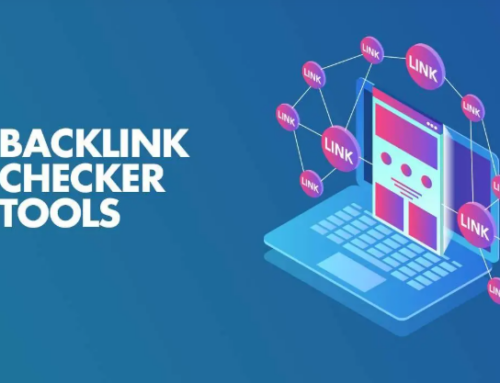What is SEO?
The use of SEO can help you boost your brand’s recognition, client relationships, and industry authority. It’s a fantastic method for achieving a variety of objectives, such as brand awareness, conversions, traffic, customer experience, and more. The importance of SEO is growing, and there is a growing desire and need for it.
To be effective, you must take into account a variety of variables, but you must first comprehend how search engine optimization is carried out. As you may already be aware, search engine optimization (SEO) is a digital marketing tactic used to increase website traffic by securing a prominent position in search engines’ natural results.
What are SEO Campaigns?
Many newcomers to the market are uncertain of how to manage an efficient SEO campaign. It typically forms a significant portion of a long-term plan that has numerous moving pieces, such as keyword research, content audits, SEO analyses, on-page optimization, link development, and numerous other factors. Enhancing search engine ranks is the main aim of a SEO strategy.
64 percent of marketers actively develop SEO efforts since they aid in achieving a number of key performance indicators (KPIs), such as boosting traffic, assisting in site optimization for relevant keywords, enhancing conversion rates, and many more. Its main draw for marketers is that it frequently works out to be a very affordable solution because it enables you to accomplish multiple marketing objectives.
Prior to beginning an SEO campaign, bear the following in mind:
- Establishing your objectives and figuring out how to measure them is crucial before you start implementing any SEO strategies.
You won’t be able to determine whether the plan you developed has been successful if you don’t define what success looks like for your business. - Putting the user experience first is key to effective SEO. It goes beyond only ensuring that visitors find your website when looking for products you sell.
- Google aims to deliver the best outcomes to its users. That would damage Google’s reputation much more than penalising your site if it meant smearing your company because you don’t follow decent SEO techniques.
In the end, SEO is about producing content that viewers want to see and using SEO to position it in front of those viewers.
To start with, you should consider SEO as a long-term objective. It’s a process that takes time to complete. The key to SEO success is commitment. You must prioritise SEO and regard it as an integral aspect of your digital marketing plan rather than as a variable that can be altered whenever it suits you.
Here are four essential SEO strategies with which you can start:
1.On-site
The process of optimization involves raising a website’s position in search results. The likelihood that someone will locate it increases with ranking. A website’s content, structure, and usability must all be improved as part of SEO optimization for it to be indexed, examined, and shown as relevant to a certain set of keywords.
2. Spend the time to conduct accurate, thorough keyword research
You should be aware of the best keywords to use. This is significant because people use the keywords to search for your content on Google. It follows that there was no sense in writing the article or sharing it on social media if they can’t locate your site when they type in such keywords. Find keywords that may rank by doing some keyword research.
3. Enhance the metadata that Google and searchers can use to understand the content of a page
To increase your chances of ranking higher, make sure your meta titles and meta descriptions contain pertinent material and your keyword phrases. It’s crucial to keep in mind that Google occasionally replaces our information with other material on the page, making it crucial to make sure your entire page is optimised.
4. Acquire knowledge of internal connections
A minimum of once every week, make sure to connect from one page of your website to another. This aids Google in determining your site’s flow, relevance, and degree of consistency. You’ll have a better chance of ranking higher if everything appears relevant to Google, which will further strengthen your effective SEO effort.
Post content on websites that allow social networking, such Facebook, Twitter, and LinkedIn. This will enable you to reach a larger audience and improve the likelihood that people will discover your website!
6. With a strong, strategically positioned call to action, stick the landing
Ensure that you end each of your postings with a call to action! This should read something along the lines of “I hope you enjoyed this post; please share it with others.” This is advantageous since it encourages readers to spread the word about your content to friends and family members who might also find it useful.
Search engines consider SEO strategy and off-site SEO seriously.
Almost everything that does not take place on your website is considered off-page SEO.
Off-page SEO is all about increasing your brand’s visibility and credibility, which can ultimately lead to more customers and sales. It is crucial that the websites you build links from have reliable content and are most importantly pertinent to your business. There are many additional SEO strategies you might utilise, so keep in mind to be innovative and think outside the box! By considering everything, you may design an effective SEO plan!
Keep in mind that maintaining organisation will help you develop a successful approach for promoting your content.
Technical SEO
Technical SEO describes the procedures followed to facilitate search engines indexing your website and improve user experience (UX).
These requirements alter as search engines’ algorithms become more complicated, which means that this kind of SEO is constantly changing.
An automatically adjusting website design known as “responsive” makes it simple to access and read on any device. Google is upfront about the fact that its algorithms give having a responsive site a very high ranking signal. A flexible website is now more crucial than ever because to Google’s implementation of the “mobile first” method to indexing information.
As a result, it makes sense to make sure that your website is totally responsive and will look great on desktop, tablet, and mobile devices.
1. Correct difficulties with duplicating content
In addition to confusing visitors and search engine algorithms, duplicate content can also be utilised to try to manipulate search rankings or increase traffic. Search engines disapprove of it as a result, and Google and Bing advise webmasters to correct any duplicate content concerns they discover.
2. Your website should use structured data markup
You can use structured data markup, a type of HTML coding, to improve how well search engines understand the content on your website.
Search engines can index your website more efficiently and return more pertinent results with the use of this data.
3. These enhanced results can increase your click through rate
It drives more visitors to your website since they are more aesthetically pleasing and highlight information that searchers can use right away. It is worth the effort to add structured data to your site because sites with results displaying greater CTRs are typically thought to receive preferential treatment in search engines.
4. Local SEO
This is an approach to search engine optimization (SEO) that can increase the visibility of your company in Google’s local search results. Local SEO may help any company that has a physical location or provides services to a specific region. Local SEO can assist you expand your business if, while searching Google for any relevant terms for your company, a map and three listings (often referred to as a map pack) display underneath the map.
Knowing what to concentrate on to make your efforts as effective as possible can be difficult if you’re new to marketing your business online.
The top 35 to 40 international authorities in local SEO participate in the annual Local Search Ranking Factors survey, which is published by marketing analytics software company Moz. The finest information about the variables that affect local search visibility can be found in its results.
It’s also crucial to keep in mind that there are SEO tools designed specifically for local search that can assist you in creating localised SEO audits. These tools range from developing keyword research targeted at your local audience to building citations, managing Google My Business listings, business profiles, and Google posts, and even monitoring your inclusion in local packs. Like in Google’s standard search algorithm, website content plays a substantial role, but location-based elements like Google My Business, citations, and review signals are also taken into account.
What Advantages Do SEO Campaigns Offer?
You have more flexibility over how you want to reach certain goals in a shorter amount of time when you divide your entire plan into discrete SEO campaigns. Say, for illustration, that your goal is to rank on the first page of Google for a particular search term.
You can produce content that is relevant to this aim by designing a campaign that is explicitly focused on it. It would be far more difficult to track if you were successful in achieving this goal without a proper SEO campaign centred around a particular term, and you wouldn’t be able to plan all the essential actions to make it happen.
How to Build an Effective SEO Campaign?
Now that you are aware of what an SEO campaign is, let’s examine the steps involved in starting one. There are a couple more steps to take, despite the misconception that all you have to do is publish content and call it excellent.
By going through the full procedure, you can get a more thorough picture of the state of your website and establish goals that are in line with your desired outcomes.
1. Take a look at where your website stands at the moment
You need to be aware of where you are right now in order to go forward. Reviewing pages and checking their current rankings will give you a decent idea of the adjustments your new SEO campaign has to make. Additionally, you’ll be able to observe where your prior SEO campaigns succeeded or failed, which will make it simpler for you to plan for your most recent campaign.
2. Conduct an SEO audit
The next step is to conduct an SEO audit to evaluate the SEO health of your website. If you’ve previously conducted an SEO audit, you don’t need to do this every time you launch a new campaign, but if you haven’t, it is highly advised that you do it now.
3. Researching keywords and creating topics
As previously said, it is crucial that we optimise around subjects rather than specific keywords. To determine the specific keyword types inside a given topic for which we wish to optimise, we must still conduct keyword research.
First things first, we need to decide what issues we want to emphasise during the campaign. This is accomplished during a brainstorming session. The goal of a brainstorming session is to get everything out there, thus there are no bad answers in this situation. As many ideas as you can muster should be written down. After brainstorming a list, try to make it as specific as you can. Combine duplicates, eliminate those that are irrelevant or unnecessary, and then select only the items you believe to be most crucial.
Remember that you may always come back to this later.
4. Improve your backlinks
A backlink is a reference to another website that links back to yours. Your domain rating increases as you gain more reputable and pertinent backlinks. It is crucial that you concentrate on the calibre rather than the quantity of these links.Your results may suffer if you receive a penalty for having a large number of low-quality backlinks in your profile.
It is crucial to keep an eye on who links to you and confirm that it is pertinent. Look at who is already connecting to you before you start establishing links to make sure they are not harmful and won’t have a negative impact in the long run.
Tools for SEO (Search Engine Optimisation)
One of the SEO tools that is frequently suggested online is Ahrefs. When it comes to size, it’s only second to Google among website crawlers. The Ahrefs Site Audit function is the best SEO analysis tool available, and SEO pros can’t get enough of it. The tool displays the areas of your website that need to be improved for higher search engine positioning.
In the SEO world, marketing SEO tools like SEMRush are frequently preferred. Experts adore them because they make it simple to evaluate your ranks, as well as to spot alterations and fresh prospects for rankings. This SEO tool’s Domain Vs. Domain comparison, which makes it simple to compare your website to that of your rivals, is one of its most well-liked features.
You will be able to compare terms and domains if you’re looking for analytics reports to help you better comprehend the search data, traffic, or even your competitors’ websites.
One of the top SEO tools that professionals actually use is the SEO software Moz Pro, which continues coming up. Some experts gushed over how Moz remained current despite Google’s frequent algorithm updates. Others appreciated Moz’s chat forum for always providing them with a thought-provoking response to each inquiry they posed. Moz is a full-service powerhouse, offering everything from site crawls to keyword suggestions. You may learn a lot about how your website is doing and how to make improvements. By displaying the topranking SERPs, Ubersuggest, a free keyword research tool created by Neil Patel, assists you in determining keywords and the search intent behind them.
With hundreds of ideas from our free, effective keyword tool, you may identify the ideal terms to utilise on your website, from short to long-tail phrases. Keyword volume, competition, CPC, and seasonal trends are among the metrics that Ubersuggest covers in its reports.
This tool, which is excellent for both organic SEO and paid PPC, may assist you in determining whether a keyword is worthwhile targeting and how competitive it is.
Conclusion
You may start focusing on signals that will improve your site’s digital presence in the local oriented search ecosystem now that you have a better understanding of SEO fundamentals and how Google ranks local search results. By doing this, your company will appear higher on the results page, increasing the likelihood that more potential customers will find it. You receive insights from them that would otherwise take a long time to develop.
Having stated that, you will need to put in the effort to achieve your goals. This entails creating SEO-optimized text, revising each product description, and making improvements based on what you’ve learnt from these SEO tools.
A genuinely good SEO campaign must be carefully managed and continually optimised for the greatest outcomes, which is a crucial point to keep in mind. SEO is a continuous process. It is the long-term strategy in action, and if you don’t have enough time to complete everything you want to, it could feel overwhelming. Having your own SEO business assist with continuing SEO efforts can be quite beneficial.
Share your thoughts in the comment section below!
Writecream provides 30+ tools for generating tons of content within seconds! Use Writecream to generate product descriptions, personalized emails, blog articles and much more and that too for free! Our free plan provides 20 credits every month which helps you generate 10,000 words per month!
Isn’t it amazing?
To get started, register here for our FOREVER FREE plan NOW!


